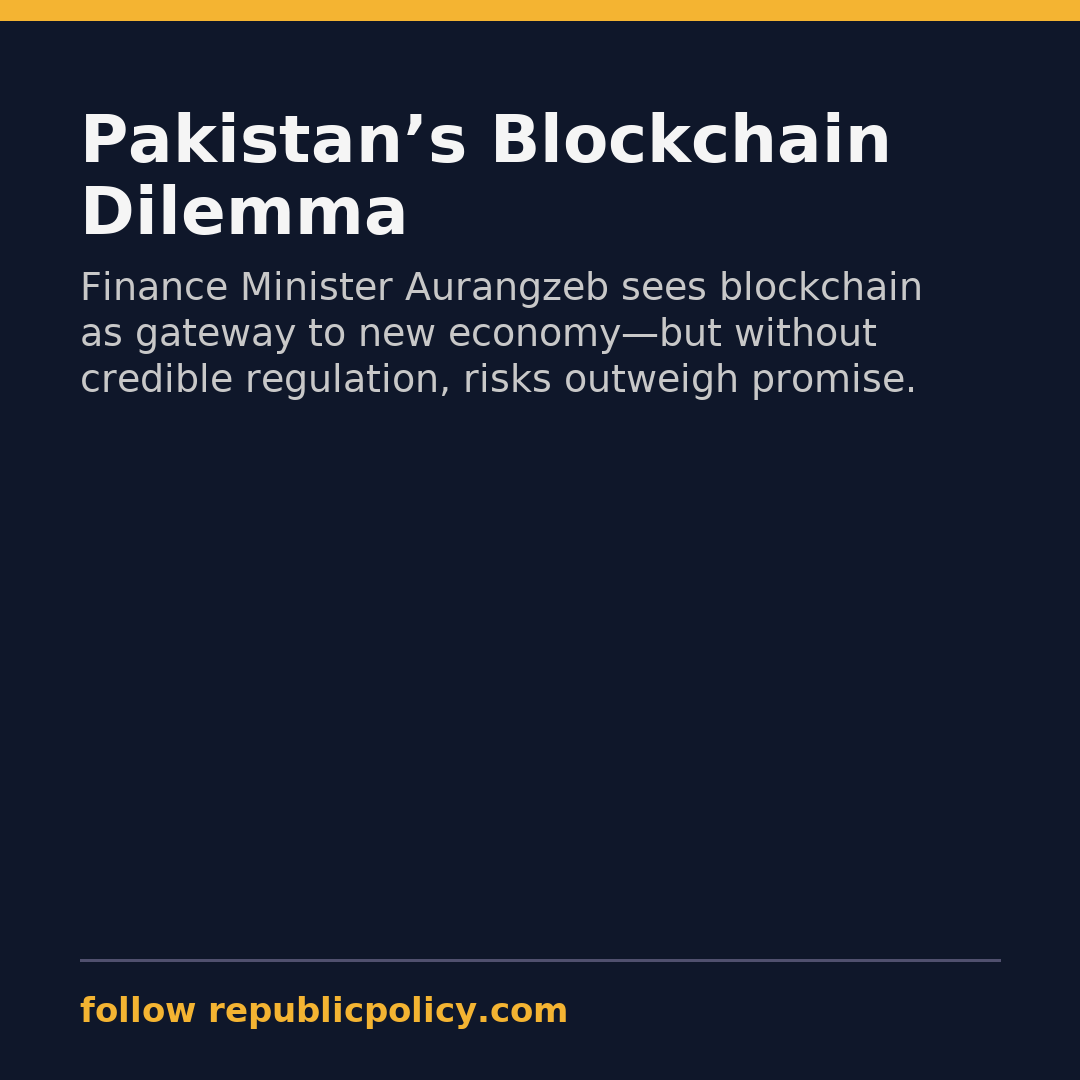Editorial
At a recent leadership summit, Finance Minister Muhammad Aurangzeb framed blockchain and digital assets as a gateway to Pakistan’s “new economy.” With an estimated 20–25 million Pakistanis already engaged—mostly youth—he argued that financial inclusion, transparency, and efficiency demand that the state embrace this technological wave. His message resonates with a global trend, but the real test lies in whether Pakistan can regulate innovation without stumbling into old cycles of over-promise and under-capacity.
Aurangzeb rightly identifies blockchain’s transformative potential: faster, cheaper transactions, improved remittance flows, e-KYC in banking, and decentralized solutions for agriculture and energy. These are areas where Pakistan’s outdated systems have long constrained growth. His recognition that youth already form an informal digital economy is both pragmatic and necessary. Ignoring this massive participation would be a policy failure of the highest order. Yet, acknowledgment alone is not strategy.
The creation of the Pakistan Virtual Asset Regulatory Authority (PVARA) is presented as a milestone. However, institutional credibility remains Pakistan’s Achilles’ heel. From SECP to NAB, regulatory bodies often fall prey to politicization and weak enforcement. If PVARA follows the same trajectory—underfunded, reactive, and lacking autonomy—it will offer little more than bureaucratic tokenism. Blockchain regulation requires agility and expertise, qualities absent in most Pakistani institutions.
Aurangzeb’s emphasis on learning from Dubai, Singapore, and the EU is well-placed, but Pakistan must avoid the trap of cosmetic borrowing. Copying frameworks without addressing domestic institutional decay is futile. A “Pakistan-first” strategy demands confronting deep structural problems: complex banking processes, fragmented compliance regimes, and the absence of digital literacy in public institutions. Without these reforms, blockchain risks becoming yet another elite-driven project disconnected from broader economic realities.
Ultimately, the minister is correct that blockchain represents both inevitability and opportunity. But optimism must be tempered with realism. Regulation must not stifle innovation, yet unregulated adoption risks financial instability, FATF reversals, and predatory exploitation of youth investors. Pakistan’s challenge is not whether to embrace blockchain, but how to embed it in a governance framework that is transparent, credible, and inclusive. That requires more than rhetoric; it requires state capacity, political will, and a genuine break from past patterns of economic mismanagement.
















